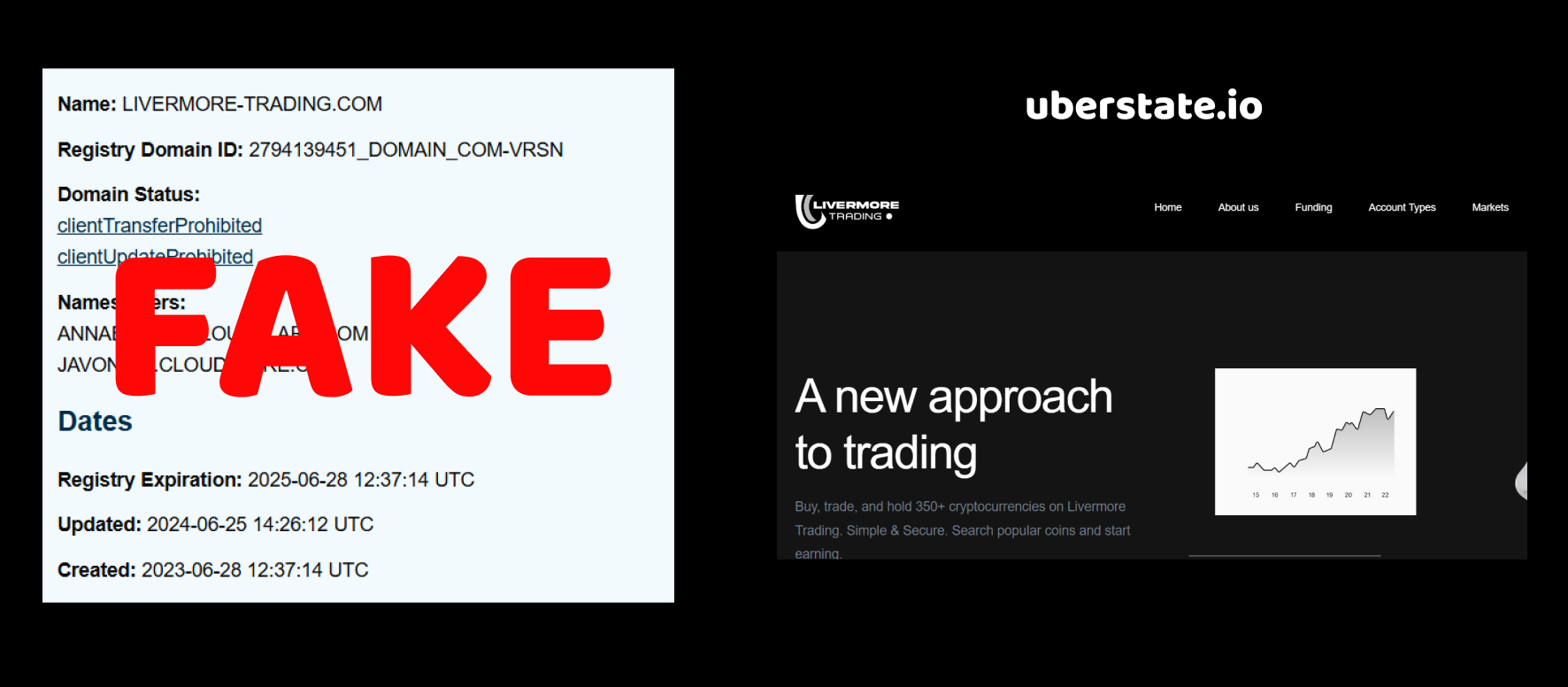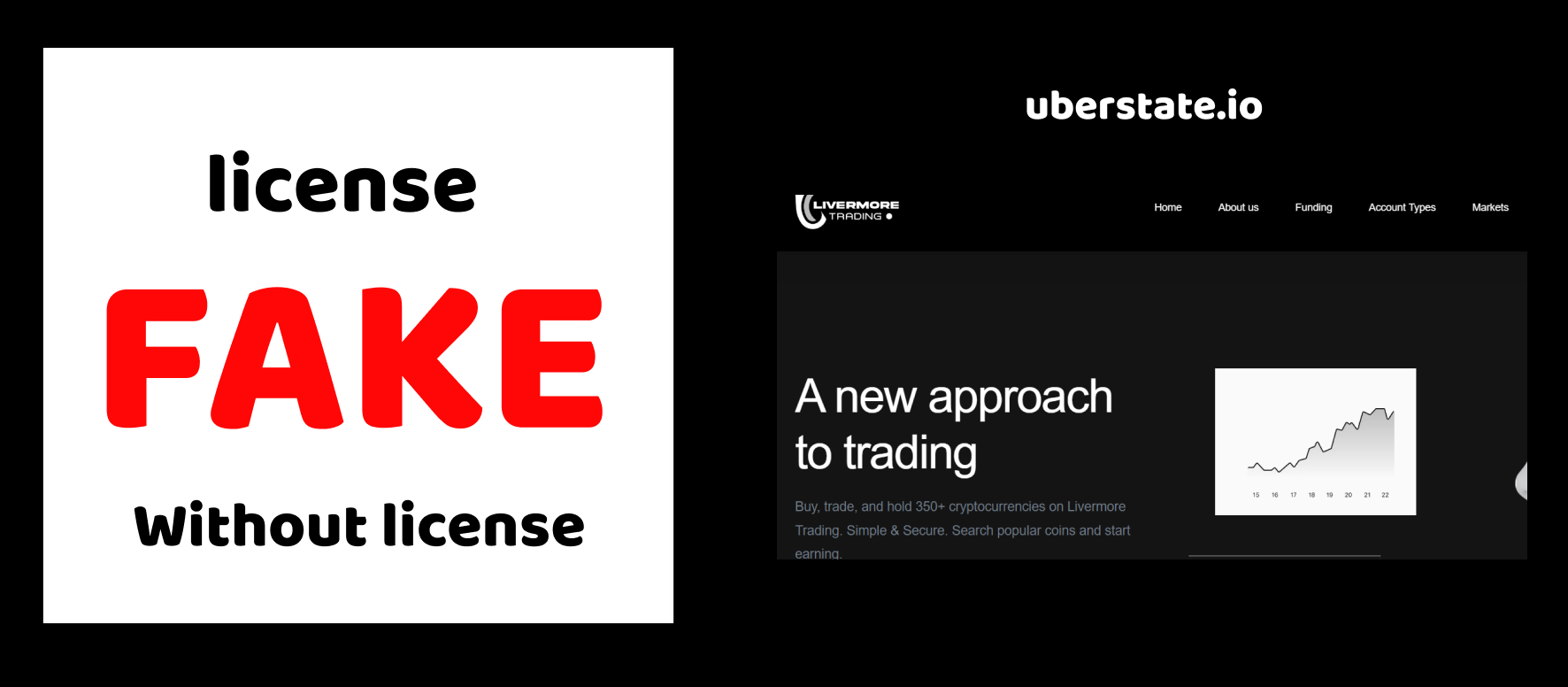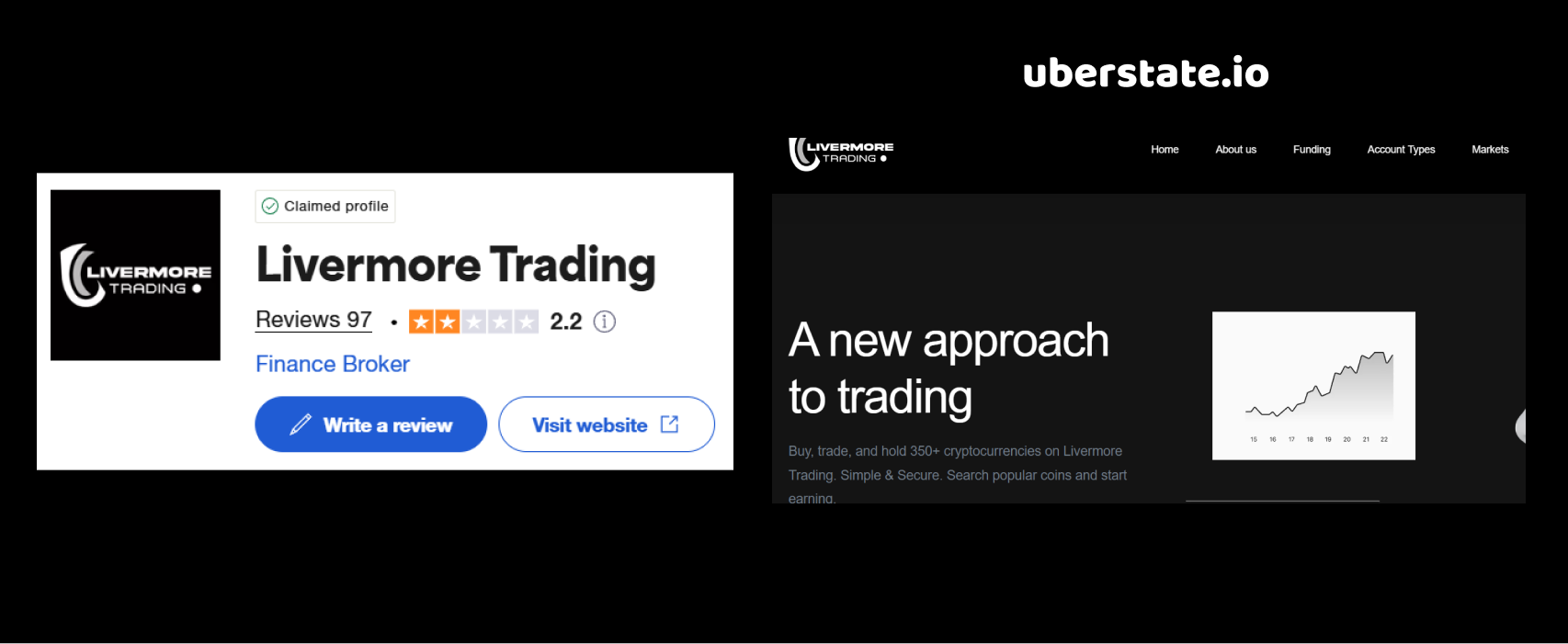Livermore Trading Review: Is This Broker Just Another Scam in Disguise?

At first glance, Livermore Trading wants to come off as a professional, reliable broker. Sleek website, confident tone, promises of high returns — the usual package. But the more we looked into this platform, the more cracks started to show. And not small ones.
Because let’s be honest — the Forex world is a magnet for shady projects. Flashy branding means nothing if there’s nothing solid behind it. So we decided to dig deeper. Not just scratch the surface, but actually check the dates, read the reviews, and see if Livermore Trading has anything real to back up its bold claims.
And what we found? Well, let’s just say it paints a very different picture than the one they’re trying to sell.
General Info About Livermore Trading
| Category | Details |
| Broker Name | Livermore Trading |
| Website | livermoretrading.com |
| Leverage | 1:200 |
| Types of Accounts | Standard, ECN, VIP |
| Contact Email | [email protected] |
| Phone Number | Not provided |
| Regulation | ❌ No license |
| Domain Registration | June 28, 2023 |
| Claimed Year Founded | 2021 |
| Trustpilot Score | 2.2 (98 reviews) |
On the surface, the broker tries to present itself as professional — offering multiple account types and relatively high leverage (1:200). But even here, there are gaps. No phone number? No company registration info? That’s not just inconvenient. That’s suspicious.
And again — all of this would be easier to overlook if there was a proper license and a decent reputation. But as we’ve already seen… there’s neither.
Livermore Trading Review: Something Doesn’t Add Up with the Domain Date
When we looked into Livermore Trading, one detail instantly raised an eyebrow — the domain registration date. The site was created on June 28, 2023, yet according to the branding and image the company is trying to sell, Livermore Trading supposedly started its journey in 2021.
Now, let’s pause here. Why would a broker that’s been around since 2021 only purchase their domain in mid-2023? That’s a two-year gap. If they really existed before, where were they operating? On a completely different domain? Was their name different? Or worse — did they not exist at all?
You see, real brokers tend to have a traceable digital footprint. Their domains are registered early, often right at the beginning of their operations, and stay consistent. But here, we see a timeline that just doesn’t match.
Could it be that Livermore Trading is simply rebranding an old scam under a new name? Or maybe it’s an entirely fresh project pretending to be established? Either way, this inconsistency is not something to ignore.
Because let’s be honest — why would a legitimate broker hide their real online history?

Livermore Trading Review: Operating Without a License? Seriously?
After digging into the regulatory background of Livermore Trading, one thing became crystal clear — they have no real license. Nothing from any recognized financial authority. No FCA, no CySEC, no ASIC. Not even one of those shady offshore regulators that fake brokers love to flash. Just nothing.
Let that sink in for a moment.
In a market as risky and volatile as Forex and CFD trading, the absolute minimum a broker can do to prove their legitimacy is obtain a license. But here’s Livermore Trading, confidently offering trading services — and yet not a single regulating body is standing behind them. Not even a pretend one.
Now, the real question is: why would a broker skip the licensing process entirely?
It’s not because it’s hard — many legitimate firms manage it. It’s because regulation comes with something scammers hate: responsibility. A licensed broker is audited, monitored, and required to follow strict rules. An unlicensed one? They can disappear overnight, and no authority will come after them.
Still trust them with your deposit?
Let’s not kid ourselves. A broker that avoids licensing isn’t doing it out of laziness. It’s a conscious choice. Because once they’re caught — and they always are — there’s no legal trail to follow.
And really, if Livermore Trading was a real, trustworthy company — wouldn’t they be the first to brag about their license on every page of their site?

Livermore Trading Review: A 2.2 Score That Says It All
When we checked the reviews for Livermore Trading, we didn’t find glowing praise or loyal clients. What we found was a Trustpilot score of 2.2 out of 5. And that alone says more than any fancy promo on their website ever could.
Think about it. In today’s world, it’s easy for companies to boost their image with a few paid reviews, especially on platforms like Trustpilot. So when a broker still manages to sit at a measly 2.2, it usually means the situation behind the scenes is even worse than it looks.
We went through some of the comments, and the pattern is clear: people are angry. Common complaints? Withdrawals blocked, accounts mysteriously frozen, rude or absent support, and the classic “they stopped replying after I asked for my money back.” The kind of stuff you never want to see associated with a company holding your funds.
But what really sealed the deal was the lack of real responses from the company. A serious broker would jump in to defend their reputation, clarify misunderstandings, and try to fix things. Livermore Trading? Silent. Almost like they’ve already moved on — or don’t care.
And let’s not forget: a bad score is one thing. But a 2.2? That’s not a warning sign. That’s a fire alarm.
Because here’s the truth — scam brokers hate transparency. And platforms like Trustpilot, where they can’t fully control the narrative, expose them for what they really are.

Final Thoughts on Livermore Trading: A Broker You Shouldn’t Trust
After putting all the pieces together, it’s hard to find anything that makes Livermore Trading look trustworthy.
The domain was only registered in mid-2023, yet the company claims to have existed since 2021. So where were they all that time? Hiding under another name? Or did they simply appear out of nowhere and slap a fake backstory on top?
No license, no regulation, no accountability. That alone should be a deal-breaker. Because when things go wrong — and with unregulated brokers, they always do — who’s going to help you get your money back? No one. That’s the point.
The reviews? A mess. A 2.2 Trustpilot score isn’t just low — it’s a loud, screaming warning. And the stories people share? Classic scam behavior: withdrawal issues, ignored support, accounts mysteriously locked. You’ve heard it all before, because it’s the same pattern every time.
Sure, the website might look polished. The promises might sound good. But here’s the thing: scammers have learned to look legit. What they can’t fake is time, regulation, and real user trust.
So, what is Livermore Trading really? Not a broker. Not a platform. Just another well-dressed trap designed to lure in people who don’t look closely enough.
And that’s exactly why we do look closely. Because spotting the red flags before you invest — that’s how you stay ahead of the scam.







